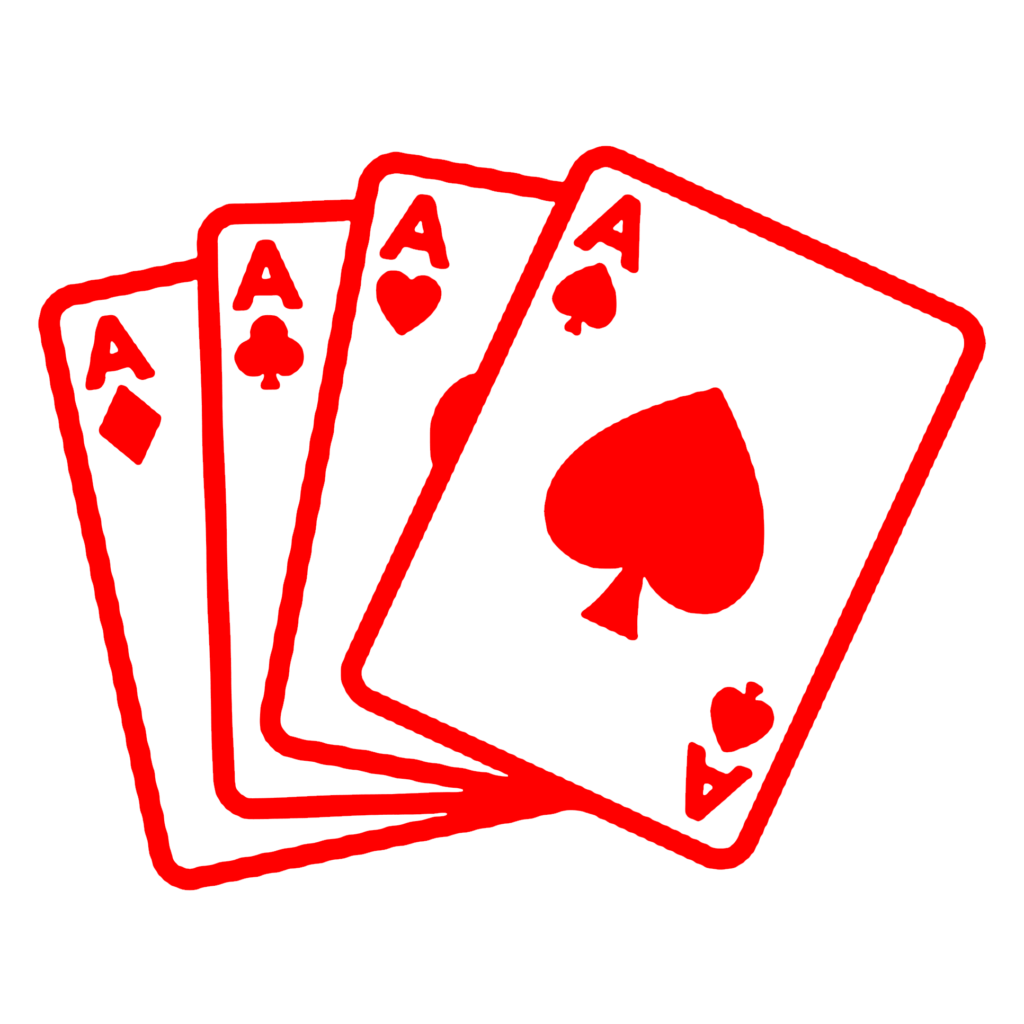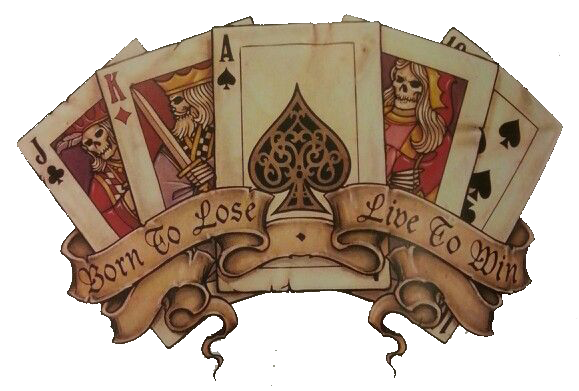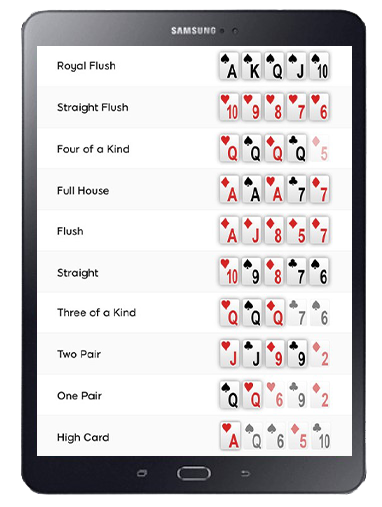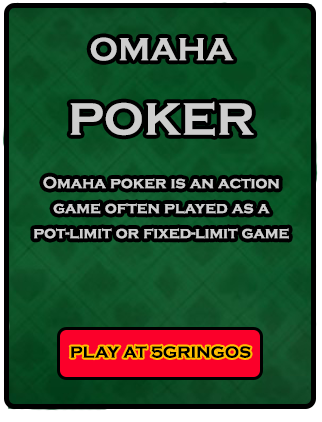How To Learn To Play Poker
How To Learn To Play Poker – Poker is a popular card game that has been played for centuries. While it may seem intimidating to learn how to play, the basics of the game can be learned relatively quickly. There are a variety of resources available to help beginners get started with learning how to play poker, including books, videos, and online courses.

How To Learn To Play Poker – Another popular resource for learning how to play poker is online videos. Many free instructional videos are available on websites such as YouTube and paid courses offered by professional poker players. These videos can be a great way to learn about the game and to see how professional players approach different situations. One important thing to remember when learning to play poker is to start with the basics.
This means focusing on the fundamentals of the game, such as the different hands and their rankings, the importance of position, and the different types of bets. It is vital to master these basics before moving on to more advanced strategies and techniques. How To Learn To Play Poker: Another critical aspect of learning how to play poker is regularly practicing. This can be done by playing with friends or joining a local poker club. Regular practice is essential for improving your skills and developing your unique playing style.

How To Learn To Play Poker
How To Learn To Play Poker
How To Learn To Play Poker – One of the keys to becoming a successful poker player is to develop a strong understanding of game theory. This involves understanding the math and statistics behind the game and developing strategies based on the actions of other players. Game theory can be a complex subject, but it is essential for anyone looking to become a serious poker player.

In addition to game theory, developing strong reading skills in poker is essential. This involves being able to read other players, identify their playing style, and pick up on subtle clues that may indicate the strength of their hand. Developing strong reading skills is essential for anyone looking to become a successful poker player.
How To Learn To Play Poker – Learning how to play poker can be a fun and rewarding experience. Many resources are available to help beginners get started, including books, videos, and online poker rooms. Anyone can become a successful poker player by focusing on the basics, practising regularly, and developing a solid understanding of game theory and reading skills. How To Learn To Play Poker: Whether you are looking to play for fun or to compete at a professional level, learning how to play poker is a great way to challenge yourself and to develop new skills.

The Basic Rules Of Poker
How To Learn To Play Poker – Poker is a popular card game that has been played for centuries. While there are many different variations of the game, the basic rules of poker are fairly consistent across all versions. Understanding the basic rules of poker is essential for anyone looking to learn how to play the game.
The first step in understanding the basic rules of poker is to familiarize yourself with the different hands and their rankings. The most critical hands in poker, from highest to lowest, are the Royal Flush, Straight Flush, Four of a Kind, Full House, Flush, Straight, Three of a Kind, Two Pair, One Pair, and High Card. Understanding these hands and their rankings is essential, as they are the game’s foundation.

How To Learn To Play Poker – Once you understand the different hands and their rankings, the next step is to learn how to play a hand of poker. The game begins with each player being dealt two cards face down, known as the “hole” cards. These cards are not shown to other players.
The first round of betting then begins. Players can choose to fold, which means they give up their cards and are out of the hand, or they can place a bet. How To Learn To Play Poker: If a player chooses to bet, the other players can choose to call, which means they match the bet, or they can fold.
How To Learn To Play Poker – After the first betting round, the dealer will reveal three community cards called the “FLOP.” These cards are shared by all players and can be used to make a hand.
Another round of betting takes place, followed by the reveal of a fourth community card, known as the “TURN.” Another round of betting occurs, followed by the reveal of a fifth and final community card, known as the “RIVER.”
After the river card is revealed, there is one final betting round. If two or more players are left in hand after this round of betting, there is a showdown, where each player reveals their cards, and the player with the best hand wins the pot.
It is important to note that in some variations of poker, such as Texas Hold’em, players can use any combination of their hole cards and the community cards to make the best hand. How To Learn To Play Poker: In other variations, such as Seven-Card Stud, players are dealt face-up and face-down cards and must use only their own cards to make the best hand.
In addition to understanding the basic rules of poker, developing a solid understanding of game strategy is essential. This includes knowing when to bet when to fold, and when to raise. It also involves reading other players and identifying their playing styles.
How To Learn To Play Poker – Understanding the basic rules of poker is essential for anyone looking to learn how to play the game. By mastering these basics and developing a strong understanding of game strategy, anyone can become a successful poker player. Whether you are looking to play for fun or to compete at a professional level, knowing the basic rules of poker is the first step to becoming a skilled player.

The Most Played Poker Games
How To Learn To Play Poker – Poker is a popular card game with many variations. While countless poker games can be played, some have become more popular than others. This review will explore the most played poker games and what makes them so popular.
🃏 Texas Hold’em is perhaps the most popular poker game in the world. It is played in both live and online casinos and in home games. In Texas Hold’em, each player is dealt two cards face down, known as the “hole” cards. Players then use these cards and five community cards to make the best possible five-card hand. The game is known for its strategic complexity and potentially big payouts.
🃏 Omaha is another popular poker game similar to Texas Hold’em. In Omaha, each player is dealt four cards face down, known as the “hole” cards. Players then use these cards and five community cards to make the best possible five-card hand. The game is known for its high action and exciting gameplay.
🃏 Seven-Card Stud is a classic poker game that was popularized in the early 20th century. In Seven-Card Stud, each player is dealt seven cards, and three face down and four face up. Players then use these cards to make the best possible five-card hand. The game is known for its slower pace and more methodical gameplay.
🃏 Five-Card Draw is a straightforward poker game popular in home games. In Five-Card Draw, each player is dealt five cards face down. Players then have the opportunity to discard any number of cards and draw new ones to make the best possible hand. The game is known for its simplicity and ease of play.
🃏 Razz is a unique poker game played in both live and online casinos. In Razz, each player is dealt seven cards, and the goal is to make the lowest possible hand. The game is known for its strategic complexity and unique gameplay. SlotsPalace Casino is one of our absolute favourites regarding mobile poker.
How To Learn To Play Poker – While these are the most popular poker games, many other variations can be played. These include Pot-Limit Omaha, Stud Hi-Lo, and 2-7 Triple Draw. Each game has unique rules and gameplay, making it an excellent choice for players who want to try something new.
Understanding the rules of each game, it is crucial to develop a strong understanding of game strategy. This includes knowing when to bet when to fold, and when to raise. It also involves reading other players and identifying their playing styles. The most played poker games offer many options for players of all skill levels. How To Learn To Play Poker -Whether you are a beginner looking to learn the game or an experienced player looking for a new challenge, there is a poker game for everyone. Anyone can become a successful poker player by understanding the rules and developing a strong strategy.

Learn The Poker Hand Rankings
How To Learn To Play Poker – It has been said that poker takes a few minutes to learn but a lifetime to master. Fortunately, the learning curve begins with your very first hand. With skill, strategy, and practice, any competent player can become proficient at the game of poker. Let’s look at how to play poker in 10 easy steps.
Step #1 – Learn the Poker Hand Rankings
Most games of poker require players to form the strongest-value hand. This typically comprises hole cards (pocket cards) and community cards. Poker is a game of smarts, mental toughness, and attrition – but it’s also a numbers game. Since the highest-ranking hand typically wins the pot, it’s vital to understand hand rankings.
The best hand you can form in a poker game is a Royal Flush (10-Jack-Queen-King-Ace of the same suit). This is followed by a Straight Flush, Four of a Kind, Full House, Flush, Straight, Three of a Kind, Two Pairs, One Pair, and a High Card. Whether you’re a newbie or a pro, always aim for the best hand!

Step #2 – Effective Bankroll Management
The most important lesson you’ll ever learn in poker is bankroll management. The best poker players are adept at managing their money well. Only gamble with what you can afford to lose and play games you can afford. This means choosing your buy-ins carefully and your types of poker games.
For example, experts advise a minimum bankroll of 30 buy-ins for NLH, 50 for a medium-size bankroll, and 100 for a bigger bankroll. The bigger your bankroll and the better it is managed, the less likely you will drop your betting stakes during your poker sessions. Your bankroll always determines the stakes that you play at.
Step #3 – Only Play Strong Starting Hands
Many newbie poker players are so eager to cash in on the action that they play too many starting hands. That is a recipe for disaster. The precise percentage of hands that you should play pre-flop depends on the specific game in question, the actions taken by your opponents, and your intuition.
As a rule, if it’s good enough to call, it’s equally good to raise. Using a starting hands chart to help improve your poker game is a great idea. Certain hands like Ace-Ace, King-King, Queen-Queen, Jack-Jack, 10-10 etc., can be played in any position, while certain hands like 3-2, 4-3, and 4-2 are virtually unplayable. The odds of winning with a pair of pocket rockets are 85% – food for thought!
Step #4 – Table Positions: Where You Sit Matters
A seat is a seat. In poker games, where you sit is important. In the real estate world, it’s called location, location, location. In poker, it’s position, position, position. Everything centres around the Button in poker games, except for Stud poker. Early Position players (EP) include the Small Blind and the Big Blind.
These are located left of the button and are first to act after the first 3 community cards have been dealt – the Flop. Seats situated right of the button are known as Late Position (LP), and they are the last to act. Middle Position seats are between Early Position and Late Position. In poker, the best positions are the last to act post-flop. Why? Because you get to see what everybody else is doing before you act.
Step #5 – Starting with the Pre-Flop Play
The poker player seated immediately to the left of the Big Blind initiates the pre-Flop action. The play continues clockwise around the table, with the Big Blind being last to act. During the pre-Flop session of the game, each poker player can fold, call or raise. As soon as players have acted, and the poker pot has been seeded, the betting round ends,
Step #6 – Continuing with the Post-Flop Play
The first 3 community cards dealt into the centre of the table for all players to use are known as the Flop. There are 5 community cards in poker games, with the Turn and the River making up the rest. Once the first 3 community cards have been dealt, players can check (make no bets), call, bet, raise or fold. Your decision is based on the strength of your starting hand, your position at the table, and the actions taken by other players.
Step #7 – Post-Turn Poker Play
After the post-Flop betting round comes to the Turn, this is the fourth community card dealt. At this point, you have the same actions as the pre-Flop. These include bet, call, raise, fold, or check. Your decision to take any of these actions is based on your table position, prior actions, and your intuition.
Step #8 – Down the River We Go
The River is the fifth and final community card dealt in a poker game. You’ve made it this far, so you probably have a hand that can win the pot. If you’ve kept a stone-cold poker face, you can bluff your way to victory. Provided everyone checks, you can raise the stakes and push for a big win.
Step #9 – The Showdown: The Final Stretch
If 2 or more players remain in hand, a showdown ensues. At this stage, the winner is the one who has the strongest 5-card poker hand. In Omaha Hi-Lo or Seven Card Stud Hi-Lo, the player with the qualifying low hand will snatch victory. Generally, the player with the highest ranking 5-card hand has crowned the winner and enjoys the spoils of victory.
Step #10 – Ante Up for a New Round of Poker
The end of one game is simply the beginning of another. Poker players are always eager to jump right back into the action. Win or lose; you always gain valuable knowledge from your online poker sessions. 888poker offers an exciting selection of cash games, SNGs, MTTs, Omaha Hi, Omaha Hi-Lo, Texas Hold’em, Seven Card Stud, and SNAP poker.

Online Poker VS Live Poker
How To Learn To Play Poker – Poker has been a popular game for decades, but the rise of online poker has brought about a new way to play. While some players prefer the traditional experience of playing live poker, others have embraced the convenience and accessibility of online poker. This review will explore the differences between online poker and live poker and which one might be right for you.
Accessibility and Convenience One of the most significant advantages of online poker is its accessibility and convenience. Players can play from the comfort of their own homes without the need to travel to a physical casino or poker room. How To Learn To Play Poker: This is particularly beneficial for players who live in areas where poker rooms are not easily accessible. Additionally, online poker is available 24/7, so players can play whenever they can.
How To Learn To Play Poker – On the other hand, live poker can be more of a hassle to play. Players need to travel to a physical location and abide by the hours of operation of the casino or poker room. This can be particularly difficult for players who live in areas where casinos are not readily available.

Gameplay The gameplay of online poker is similar to that of live poker, but there are some key differences. Online poker games are generally faster-paced than live poker, as dealers don’t need to shuffle and deal cards. How To Learn To Play Poker: Additionally, players in online poker games cannot physically interact with each other, making it more difficult to read other players and pick up on tells.
How To Learn To Play Poker – Live poker, on the other hand, is slower-paced, and players can interact with each other physically. This can make reading other players easier and picking up on tells. Additionally, live poker games often have a more social atmosphere, making them more enjoyable for some players.
Rake and Limits Another difference between online poker and live poker is the rake and limits. In online poker, the rake is generally lower than in live poker games. How To Learn To Play Poker: This is because online poker rooms have lower overhead costs and can afford to take a smaller percentage of the pot. Additionally, online poker rooms often have lower minimum and maximum bet limits than live poker games.
How To Learn To Play Poker – On the other hand, live poker games often have higher minimum and maximum bet limits than online poker games. This can make them more challenging for beginner players who are not yet comfortable betting large amounts of money.
Cheating One potential disadvantage of online poker is the risk of cheating. While most online poker rooms have measures in place to prevent cheating, it is still possible for players to collude with each other or use software to gain an unfair advantage. On the other hand, live poker games are generally considered more secure, as players can interact with each other physically and dealers can monitor the game more closely.
How To Learn To Play Poker – Ultimately, the decision between online poker and live poker comes down to personal preference. Online poker is more accessible and convenient, with lower rake and limits. However, live poker offers a slower pace, more social atmosphere, and a lower risk of cheating. Ultimately, both options provide a great way to enjoy the poker game and can be rewarding for players of all skill levels.

How To Learn To Play Poker
The History Of Poker
How To Learn To Play Poker – Poker is one of the most popular card games in the world, played by millions of people in casinos, homes, and online. It is a game of skill, strategy, and luck, originating over hundreds of years. In this review, we will explore the history of poker, from its earliest origins to the modern game that we know and love today.
Origins of Poker The exact origins of poker are unclear, but it is believed to have originated in either Europe or Asia in the early 19th century. How To Learn To Play Poker: The game was likely based on several card games that were popular at the time, including the French game of poque and the German game of pochen.
How To Learn To Play Poker – Early Days of Poker In the early days of poker, the game was primarily played by sailors, traders, and other travellers. It was a popular pastime on riverboats and in saloons, with different variations of the game developing in different regions of the United States.

How To Learn To Play Poker – The Wild West Poker became particularly popular in the Wild West, played by cowboys, outlaws, and other rough-and-tumble characters. The game became synonymous with the Wild West, with many legends and myths developing around famous poker players, such as Wild Bill Hickok and Doc Holliday.
How To Learn To Play Poker – The Modern Game In the early 20th century, poker began to evolve into the game that we know and love today. The introduction of the draw and stud variations of the game brought new levels of strategy and complexity to the game, and the establishment of organized tournaments and leagues brought the game into the mainstream.
World Series of Poker In 1970, the World Series of Poker was established, marking a new era for the game. The tournament attracted the best poker players worldwide, and the prize money quickly grew to become one of the largest in professional sports. How To Learn To Play Poker: The World Series of Poker has since become one of the most prestigious and anticipated events in the poker world.
How To Learn To Play Poker – Online Poker The rise of the internet in the 1990s brought about a new way to play poker. Online poker rooms began to emerge, allowing players to play against each other from the comfort of their own homes. Online poker has since become incredibly popular, with millions of players playing on various online poker sites worldwide.
The future of poker is bright, with new variations of the game emerging and new technology allowing for even more immersive and exciting gameplay. How To Learn To Play Poker: Additionally, the increasing acceptance of poker as a legitimate sport and profession has led to more opportunities for players to compete and earn a living playing the game.
How To Learn To Play Poker – The history of poker is a rich and fascinating one, filled with legends, myths, and memorable moments. From its earliest origins to the modern game that we know today, poker has evolved into one of the world’s most popular and beloved card games. Whether played in a casino, at home, or online, poker brings people together and challenges them in new and exciting ways.

How To Learn To Play Poker FAQ
What is poker?
Poker is a card game that involves betting and individual play, where the objective is to have the best hand of cards compared to other players.
How many players can play poker?
Poker can be played with anywhere from 2 to 10 players, depending on the game and the variation being played.
What are some popular poker variations?
Some popular poker variations include Texas Hold’em, Omaha, Seven-Card Stud, and Five-Card Draw.
How do you win at poker?
To win at poker, you need to have the best hand of cards compared to other players or convince other players to fold their hands before the end of the game.
What are the basic rules of poker?
The basic rules of poker involve dealing cards to players, placing bets, and revealing cards at the end of each round of betting to determine the winner.
What is a hand in poker?
A hand in poker is a set of cards that a player holds during the game. The combination of cards determines the strength of the hand.
How do you learn to play poker?
You can learn to play poker by reading books or articles, watching videos, or taking online courses. You can also practice playing with friends or online in low-stakes games.
What are some common poker terms?
Some common poker terms include “bluff,” “call,” “fold,” “raise,” “pot,” and “showdown.”
How do you calculate pot odds in poker?
Pot odds are calculated by comparing the amount of chips in the pot to the amount of chips required to make a call. This helps determine the probability of winning the hand and whether or not to make a bet or fold.
What is a “tell” in poker?
A “tell” in poker is a physical or behavioral clue that gives away information about the strength of a player’s hand. This can include things like facial expressions, body language, or betting patterns.
What is a “bluff” in poker?
A “bluff” in poker is a tactic players use to deceive opponents into thinking they have a stronger hand than they actually do. This is done by betting or raising aggressively, even if the player’s hand is weak.
Is poker considered a game of skill or luck?
Poker is considered a game of both skill and luck. While luck plays a role in the cards that are dealt, skill in betting, reading opponents, and making strategic decisions is also important in determining the game’s outcome.









































